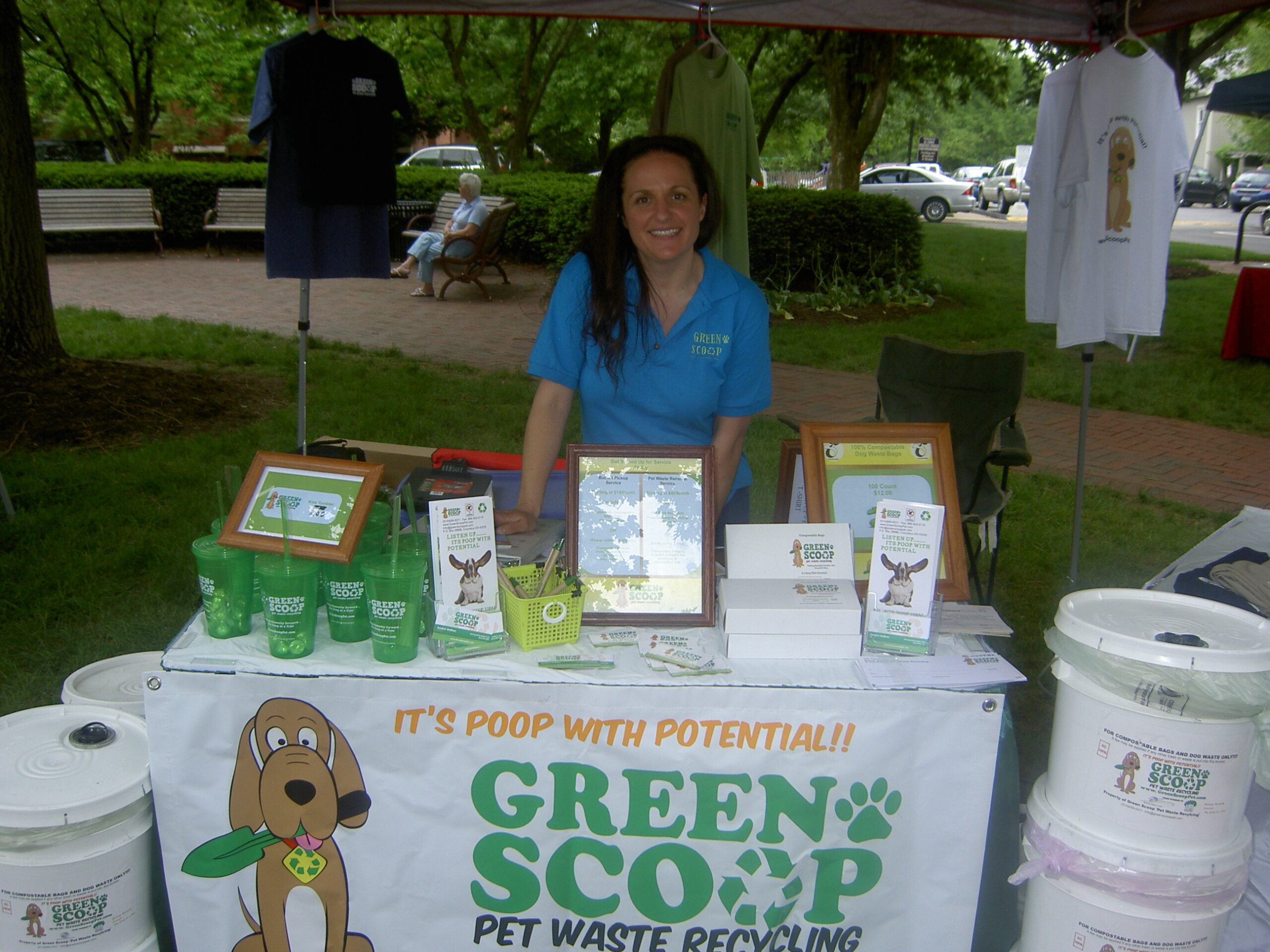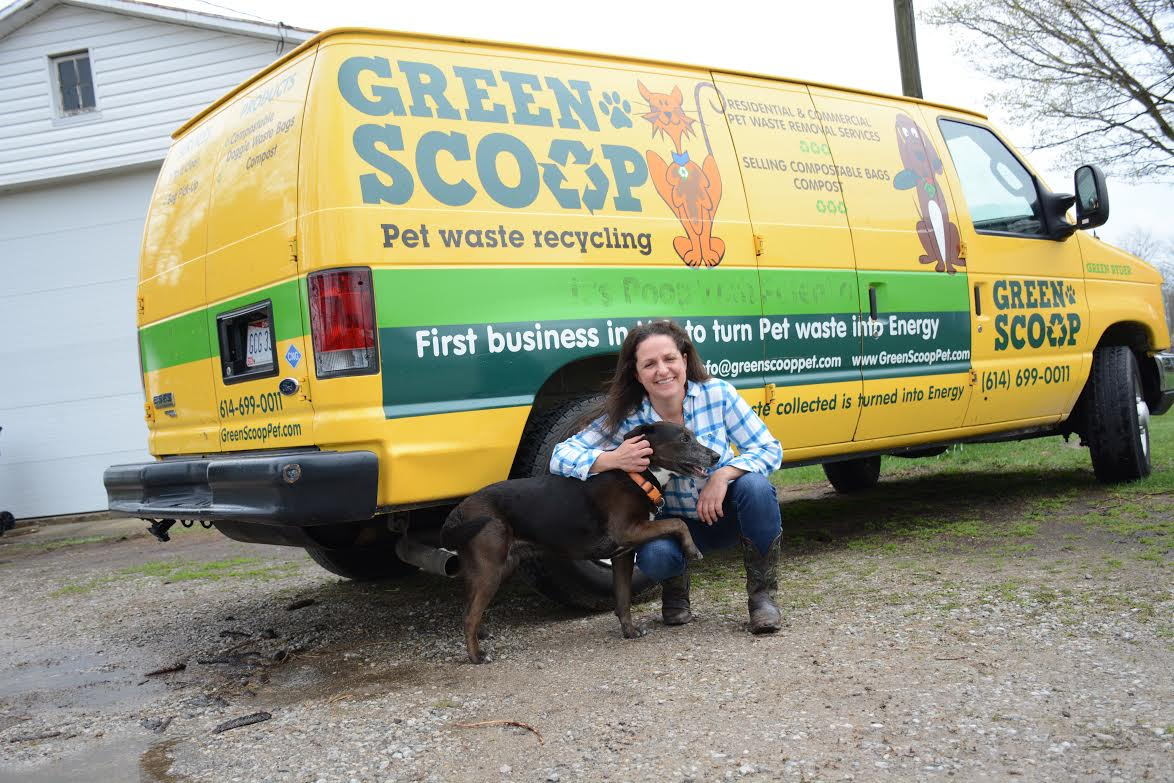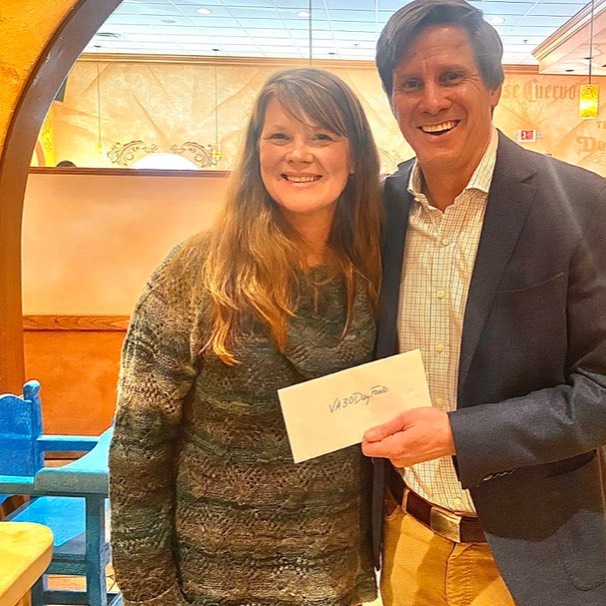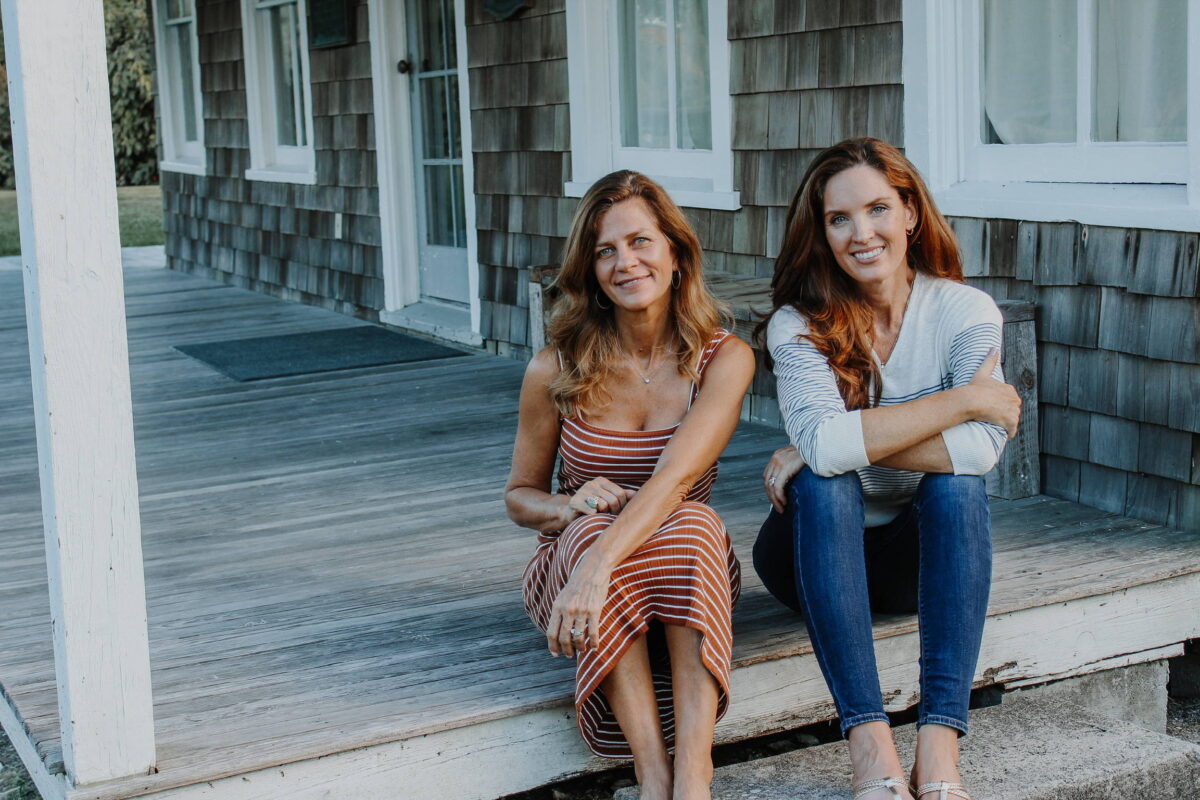Jendell Duffner is the owner behind central Ohio-based pet waste removal company Green Scoop Pet Waste Management. Founded in 2013, they are the first business in the country to collect pet waste and turn it into energy. According to their website, over 10 million tons of dog waste end up in landfill sites across the country. The company provides residents of central Ohio with a means to lower landfill waste while also supporting alternative sources of energy production. One of Duffner’s greatest achievements is producing many jobs. Since starting the company, she has helped many families earn a living doing a job that they respect.
Through their Pet Poo Recycling Program, the company provides buckets and supplies to interested pet owners who then fill up their bucket with pet waste and have it collected on a weekly or biweekly basis by Green Scoop Pet employees. The waste is then deposited at a bio facility which collects the methane and converts it into energy in the form of electricity and natural gas. Some of the energy is used to supply power to the processing plant while the rest is fed back to the grid. The solids left behind undergo an extensive cleaning process, removing harmful pathogens and bacteria before being sent to farmers to be used as fertilizer for their fields.
Duffner also provides an option for cat litter recycling. The company supplies a special cat litter made from locally processed grain in a pellet form that owners can use to compost their cat’s waste and turn it into energy!
‘I’ve Always Been Passionate About the Environment’

While in high school, she embarked on an environmental project which led to her convincing the mayor into purchasing a wood chipper for their small town in Bucyrus, Ohio rather than burn piles of branches that fell during the ice storms.
After college, she continued her environmental studies, receiving training in naturalism and tree identification. With each new experience, Duffer realized she wanted to do more.
She always wished to start her own environmental business but didn’t want to compete with larger franchises. She settled on pet waste recycling but needed to come up with a unique angle—something that was missing from the businesses of the time. Having a background in environmental science was a huge advantage for her as it meant that she had a solid foundation.
Duffner’s vision was to start up a business that turned pet waste into energy. During her research, she came across two existing companies that composted pet waste and used the output to generate fuel for energy. Inspired, Duffner went about incorporating that into her business model. However, it wasn’t what she had hoped it would be. Profit margins were incredibly low and the energy required to break down the pet waste was exceptionally high, resulting in great financial setbacks for her company.
Learning From Her Mistakes
“As a business, you need to be able to make a profit to make a difference. And you need to be able to pay people properly,” she said. To offset the high operating cost, one would need a steady stream of customers, which would mean collecting a lot of waste. “It takes a lot of knowledge to use the right ingredients and recipes to make them [pet waste] break down on a timely basis,” said Duffner. “So for it to break down, you have to have a really expensive in-vessel.” The basic equipment itself tends to cost upwards of 200,000 USD, making it not the most cost-effective model for most small businesses. One needs to also ensure that the temperature in the in-vessel is high enough—131° F or greater, to destroy harmful pathogens present in pet waste—a very precise operation that can only be achieved through commercial means and techniques. For Duffner, it meant changing her business model to better suit her requirements.
Despite the many difficulties and financial losses, Duffner realized that she could still make a difference without having to be directly involved in the composting. “I can do what I can, still make a profit while offering a good service, and still be able to grow my business,” she said. For her, the main focus was always about providing the best possible service to customers to ensure profitability which would, in turn, allow her to provide jobs for her employees. “Make sure you’re offering a service that they value. And then you integrate things from there. That’s how you can continue to make a difference. Not by trying to completely change every aspect of things that currently work,” she said.
‘Producing Jobs Is my Biggest Joy’
Duffner’s biggest source of joy is the ability to provide jobs to people. This effort has now become the main focus of her operation. “I have employees that depend on me for paychecks,” said Duffner. “When you have an employee come up to you and say thank you, because of you, I was able to buy a dependable vehicle. Because of you, I was able to move out of my sister’s house and get my own place. Thank you so much for giving me a job. That’s what really matters.”
She advises that the best way for people to help the environment is through reusing products. If you have a lot of plastic bags or you know someone at work who is getting rid of them, ask them to save them for you. Then, you could use it to pick up dog waste or to hold your produce at the grocery store. This is a more sustainable and environmentally friendly solution to purchasing more bags.








